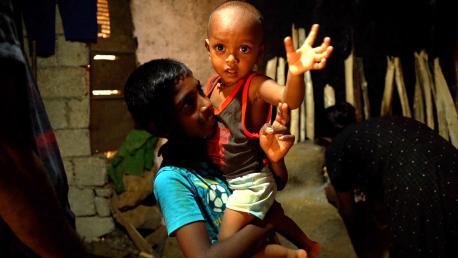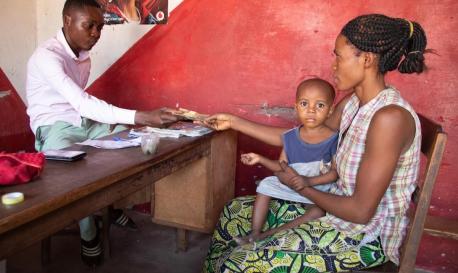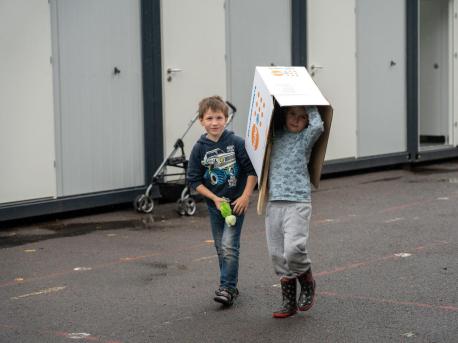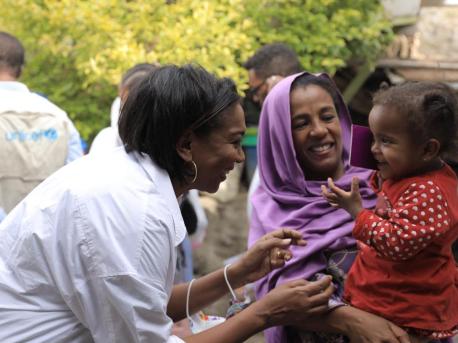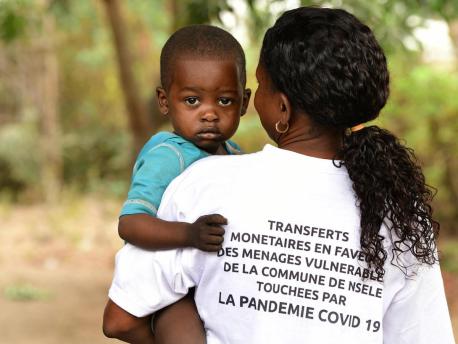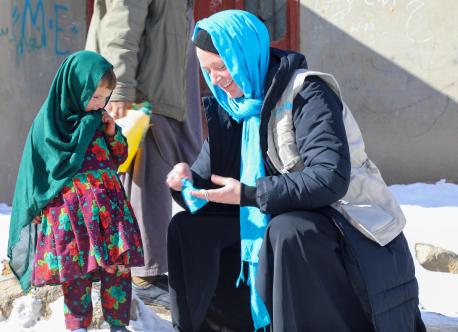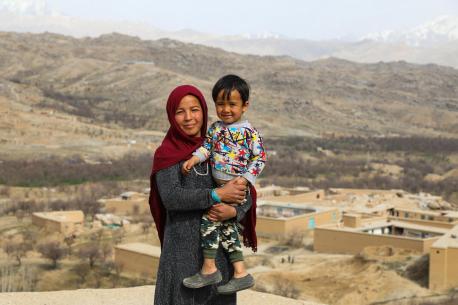
UNICEF Humanitarian Cash Transfers
Direct payments in the form of physical currency or e-cash are a highly effective way of providing humanitarian assistance to individuals and households in need — allowing beneficiaries to decide for themselves what their children and families need most.
A lifeline for families caught in crisis
Millions of people are on the move in the world today: fleeing war, drought, floods and other disasters, forced to leave their homes and their livelihoods, while those who remain continue to suffer, pushed further into poverty and desperation.
UNICEF provides a lifeline through humanitarian cash transfers — a form of assistance provided as physical currency or e-cash that is making a positive difference for families caught in crises all around the world.
Through this program, families receive a cash stipend or equivalent that they can use to buy food, clothing, school supplies, medicines and other essentials in places where goods are available on the market.
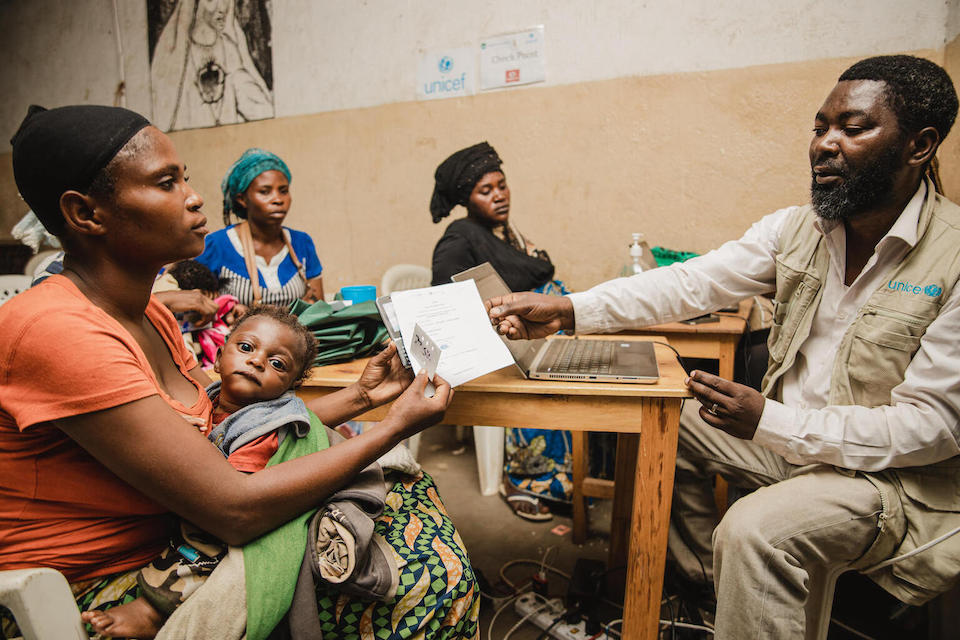
Research shows cash assistance saves lives
A 2023 study of 7 million people in 37 countries published in the journal Nature found that cash grants given to those in poverty resulted in a 20 percent decrease in deaths among women and an 8 percent decrease among children younger than age 5.
The results were found to be the same whether the funds came with conditions, such as school attendance, or not.
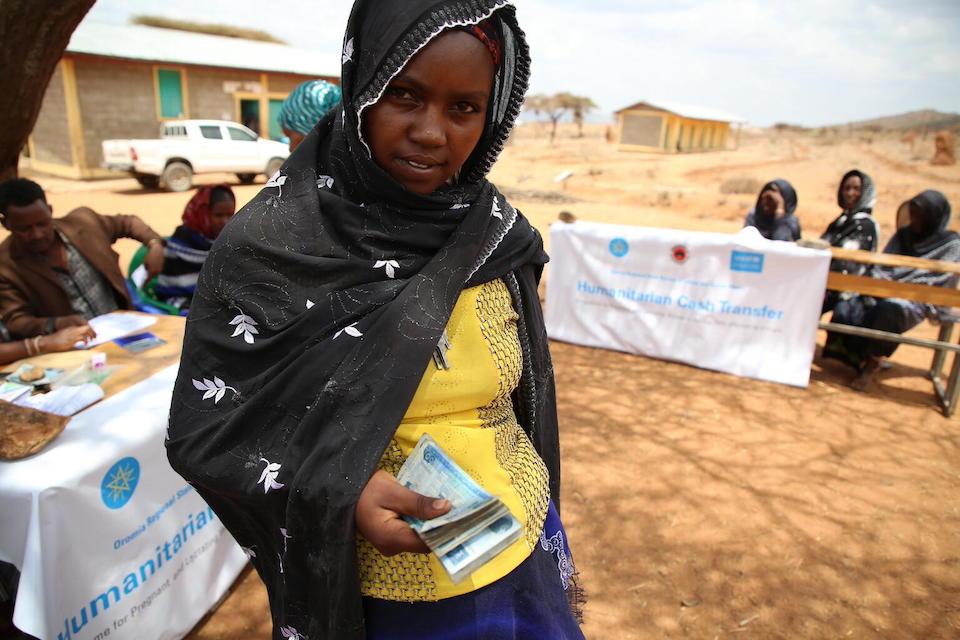
As a complement to UNICEF's delivery of humanitarian supplies, cash transfers help people in need avoid harmful coping strategies such as child labor and child marriage.
By letting recipients buy local goods, cash assistance directly benefits the family and the community and supports the local economy. For migrants, it can also mean a positive relationship with their host communities.
UNICEF's direct cash transfers have not only helped with basic needs but have also improved school attendance, nutrition and use of health services.
- In Yemen, years of conflict and economic strife have led to widespread food insecurity. Cash payments have helped families get food, health care and other essential services.
- In Syria, UNICEF’s winter assistance program included three installments of $60 payments to help vulnerable families pay for heating fuel, gas for cooking, warm clothes and blankets.
- In the Democratic Republic of the Congo, a UNICEF program called Cash for Nutrition gives families with acutely malnourished children a lifeline by helping them afford nutritious food.
- In Afghanistan, the Taliban takeover and economic collapse led some families to sell their girls into marriage. UNICEF’s multipurpose cash transfer program paid $90 a month to more than 36,000 households, helping them out of extreme poverty so they could keep their families together.
- In war-torn Ukraine, UNICEF's Spilno cash assistance program has distributed $125 million and reached hundreds of thousands of children and families displaced and otherwise impacted by the war.
- In Sri Lanka, where food prices have soared due to an economic crisis, a UNICEF-supported Cash Plus program is helping more than 70,000 families buy staples they could otherwise no longer afford.
The amounts distributed are often less than $100 — a seemingly small amount. But for a desperate family it can make all the difference.
The unconditional cash payments give parents the dignity to decide for themselves what they and their families need and what to buy.
"No one is in a better position to decide how to get the most out of this support than a parent or guardian," says Murat Sahin, UNICEF Representative in Ukraine.
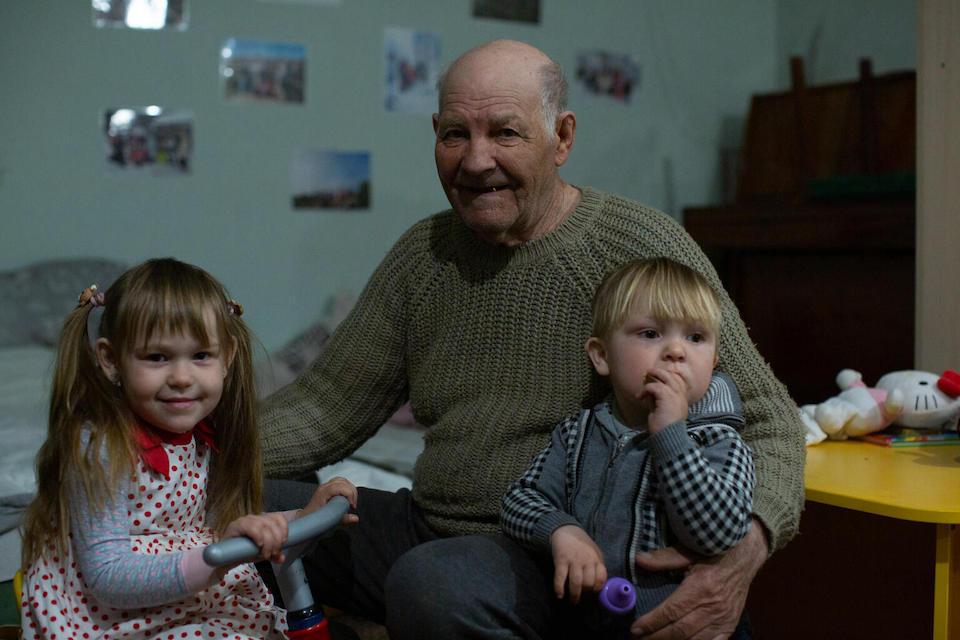
Anar Gul of Daikundi Province, central Afghanistan, was able to buy healthy food and school supplies and take her kids to a health clinic for checkups. "It is better to receive this assistance as cash," she says, "because if we’re given clothes, we may already have clothes to wear, but we might not have food to eat. Sometimes, we might be given food, but we have no shoes to walk in."
UNICEF's humanitarian cash transfer program is one of many different interventions implemented by UNICEF and partners in countries all around the world. Learn more about what UNICEF does to help vulnerable children and families survive and thrive. Support UNICEF's mission. Donate today.
